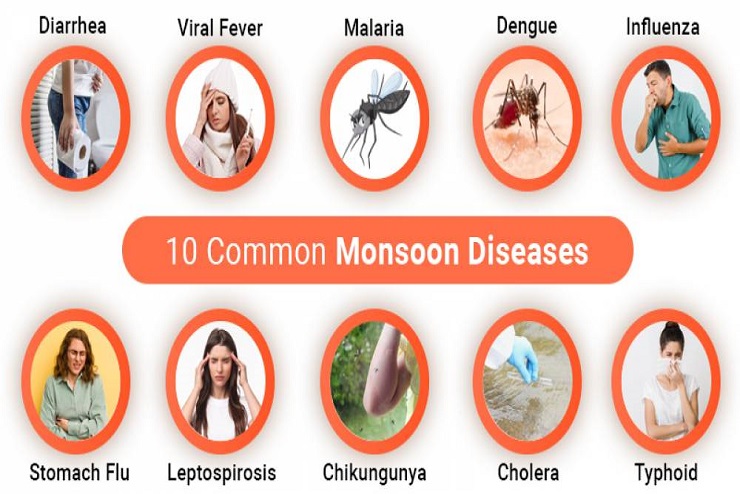
Why you should take extra care in rainy season?
The rainy season brings much-needed relief from the scorching heat and breathes new life into the environment. However, along with the refreshing showers, it also brings a host of health risks and challenges that require extra care and attention. The combination of increased humidity, stagnant water, and fluctuating temperatures creates an environment conducive to the spread of diseases and accidents. Here’s why it’s essential to take extra precautions during the rainy season.
1. Increased Risk of Waterborne Diseases
One of the most significant health concerns during the rainy season is the spread of waterborne diseases such as cholera, typhoid, and gastroenteritis. Contaminated water sources, often caused by flooding and poor drainage systems, become breeding grounds for harmful bacteria and viruses. Consuming or coming into contact with contaminated water can lead to serious health issues. It’s crucial to ensure that the water you drink is clean, either by boiling it or using water purifiers, and to avoid eating food from unhygienic sources.
2. Mosquito-Borne Illnesses
The rainy season is synonymous with an increase in mosquito populations, leading to a surge in mosquito-borne diseases such as dengue, malaria, and chikungunya. Stagnant water, which collects in puddles, open containers, and blocked drains, provides ideal breeding grounds for mosquitoes. To protect yourself, use mosquito repellents, wear long-sleeved clothing, and ensure that your living spaces are free from standing water.
3. Viral Infections and Respiratory Issues
The change in weather during the rainy season can lead to a higher incidence of viral infections, including the common cold, flu, and respiratory infections. The combination of damp conditions and fluctuating temperatures weakens the immune system, making it easier for viruses to spread. To reduce your risk, maintain good hygiene, keep your living spaces dry and well-ventilated, and consider boosting your immunity with a healthy diet rich in vitamins and minerals.
4. Skin Infections and Allergies
The high humidity and damp conditions during the rainy season can lead to various skin problems, including fungal infections, rashes, and allergies. Constant exposure to wet clothes, muddy water, and unhygienic environments can exacerbate these issues. To protect your skin, keep it dry, change out of wet clothes as soon as possible, and use antifungal powders or creams if needed.
5. Road Safety Hazards
Rainy weather increases the risk of accidents on the road due to slippery surfaces, reduced visibility, and waterlogged streets. Pedestrians and drivers alike need to exercise extra caution to avoid accidents. If you’re driving, ensure your vehicle’s tires and brakes are in good condition, drive at a reduced speed, and use headlights for better visibility. Pedestrians should wear appropriate footwear to prevent slipping and use umbrellas or raincoats for protection.
6. Food Contamination and Digestive Issues
The rainy season often leads to an increase in food contamination, particularly with street food and perishables that spoil quickly in humid conditions. Eating contaminated food can lead to digestive issues such as food poisoning and diarrhea. To stay safe, avoid eating food from unhygienic sources, wash fruits and vegetables thoroughly, and ensure that cooked food is stored properly.
7. Mental Health Considerations
The gloomy and overcast weather during the rainy season can also affect mental health, leading to feelings of lethargy, sadness, or even depression for some people. Reduced exposure to sunlight can impact mood and energy levels. To combat this, try to maintain a regular routine, stay active indoors, and seek out activities that bring you joy and relaxation.
Conclusion
While the rainy season brings with it a sense of renewal and freshness, it also poses unique health and safety challenges. By taking extra care and being mindful of the risks, you can enjoy the beauty of the season while keeping yourself and your loved ones safe and healthy. From safeguarding against waterborne and mosquito-borne diseases to ensuring road safety and maintaining good hygiene, a little precaution can go a long way in making the rainy season a time of joy rather than concern.


